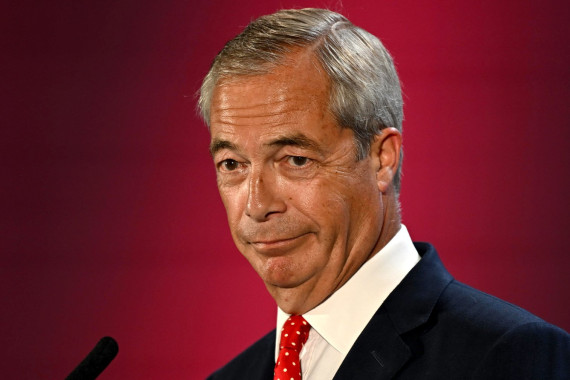
How Nigel Farage’s biopolitics captured Westminster
Posted: 29th August 2025
How Nigel Farage’s biopolitics captured Westminster
With Reform UK looking increasingly likely to turn public outrage over immigration into seats at the next general election in 2029, Westminster is staring into the abyss.
At a widely covered press conference this week, the party hammered home its talking points: mass deportations, barbed-wire camps, and paying authoritarian regimes – including the Taliban – to park migrants out of sight. But first, bin the European Convention on Human Rights.
The whole spectacle proved that Nigel Farage hasn’t just joined the debate – he owns it. Views and policies that would once have been seen as extremist are now treated as normal. Illiberalism has been rebranded as ‘common sense’.
Reform’s success lies in biopolitics, a concept popularised by French philosopher Michel Foucault in the 20th century, which involves governing by sorting lives: managing, counting, classifying and containing. As Foucault argued, modern power operates by regulating bodies and populations, rather than solely issuing laws and prohibitions.
- Keep openDemocracy free to read for everyone
- Provide our team with the support they need to work safely in a dangerous world
- Deliver the reporting that matters to you – and that reaches as many people as possible
In modern Britain, biopolitical techniques circulate not only through the formal machinery of the state but across media ecosystems, party war rooms, banks, and cultural institutions. Farage and his allies are riding that network to yank the Overton window ever further to the right. To do so, they’re aided by other political parties, which play along, laundering the language until punishment sounds like policy.
The Labour government, for example, has met Farage’s claims with triangulation; adopting, bleaching and redeploying key themes. From Keir Starmer’s Powell-echoing ‘island of strangers’ speech to the bigotry of his party’s arguments over what is a woman, sideshows have become centre stage.
At the same time, Labour ministers have overseen the hardening of protest policing, with counter-terrorism powers around pro-Palestine marches stretching the law and freezing dissent. That’s the machinery in motion: manage the population, marginalise the unwanted, then badge it as moderation.
None of this would have succeeded without the Conservatives’ simultaneous repositioning under Kemi Badenoch’s leadership. Over the past year, Badenoch has lurched from gaffe to gaffe as she strains to outflank Farage on the right, even distancing herself from aspects of her own Nigerian heritage in efforts to do so. The party is not a coherent alternative to Reform, but its shadow.
In place of a governing prospectus, Badenoch’s party has fallen back on culture war polarities paired with promises to scrap equality laws. One could even argue that the Conservatives’ latest trial balloon – a plan to build camps to detain migrants – primed, if not inspired, Reform’s migration plans.
Mainstream pivots hand Farage a perfect foil: his programme reads as the original, everyone else as knockoffs. And that matters. Far-right projects are cumulative and path-dependent – built through organisation, repetition, drilled populist lines, and, above all, a durable anti-establishment pose, even when the cheques come from billionaires.
Voters drawn to this politics pick the architect over the imitator. Farage has hammered these positions for years, and copycats rarely manage to dethrone a brand that’s been so carefully engineered.
In this environment, the media aren’t bystanders; they’re accelerants. On Monday, as Farage unveiled his plans, the BBC’s rolling 24-hour news channel handed him 58 minutes of oxygen. Talking points were platformed with scant contextual challenge, helping drive dehumanisation and normalise the most extremist rhetoric. Live, no interruptions – and we all know how that ends.
